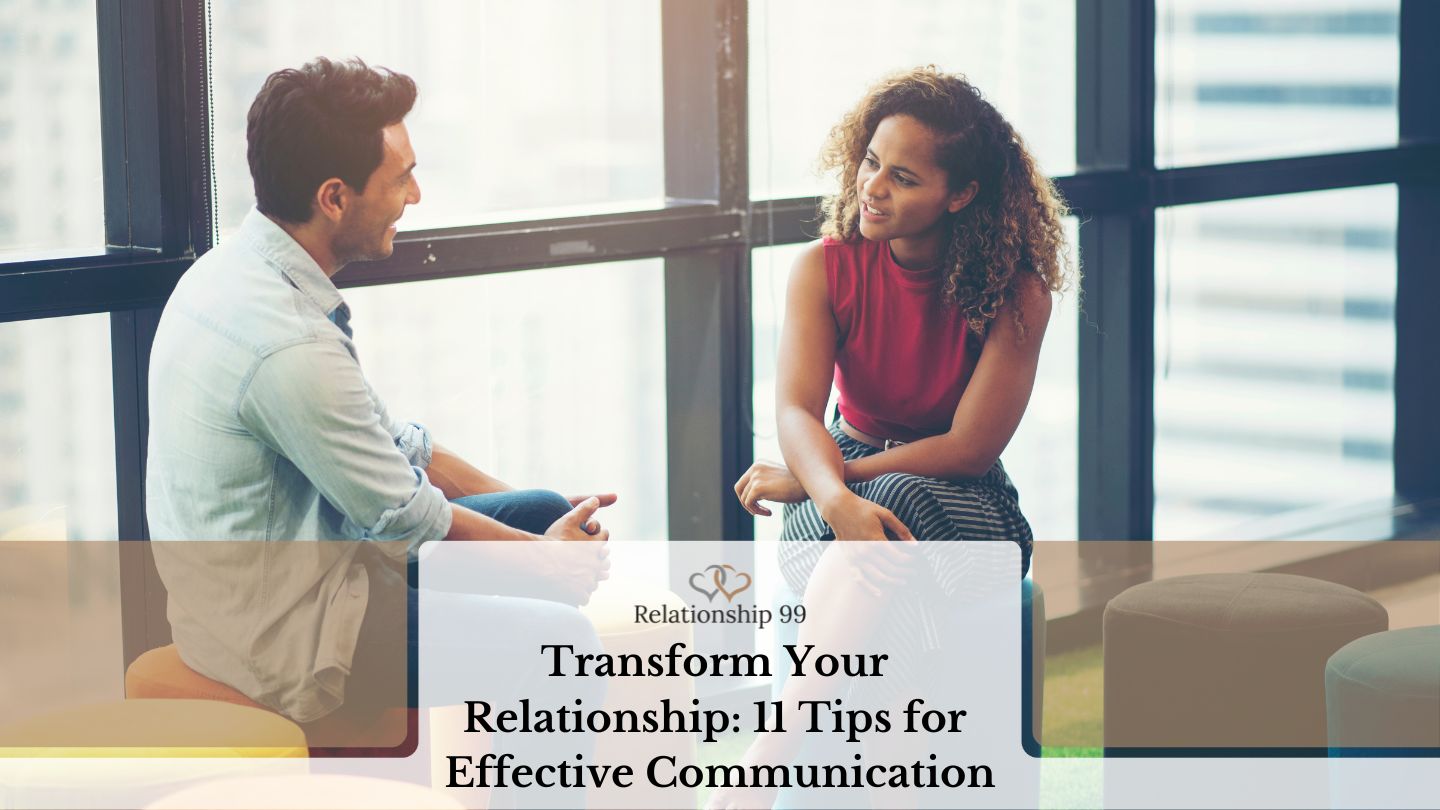Communication is the foundation of any successful relationship. It allows us to express ourselves, understand our partner’s thoughts and feelings, and work together towards a shared goal. However, effective communication in relationships can be challenging at times. Misunderstandings, arguments, and conflicts are common occurrences when communication breaks down.
But fear not! With the proper approach and some simple techniques, you can transform your relationship by improving your communication skills. In this blog, we will discuss eleven communication tips that will help you build a stronger and more fulfilling relationship with your partner.
1.Use Simple Language
One of the most important aspects of effective communication is using simple language, as this helps to avoid misunderstandings. For instance, instead of saying, “I feel like you never listen to me,” try saying, “I would appreciate it if you could give me your undivided attention when I’m speaking.” Using simple language makes it easier for your partner to understand your point and respond appropriately.

You should also avoid using accusatory or inflammatory language, as it can escalate a situation and make your partner feel defensive.
2.Be a Good Listener
Communication is not just about talking; it also involves listening. Being a good listener means showing your partner your undivided attention when they are speaking. Avoid interrupting or getting distracted by other things.
When your partner is talking, listen to understand rather than to respond. Show them that you are listening by making eye contact, nodding, and acknowledging what they are saying. Being a good listener will make your partner feel valued and understood, which can strengthen your relationship.
3.Be Aware of Non-Verbal Cues
While words are essential in communication, non-verbal cues also play a crucial role. These include body language, facial expressions, and tone of voice. Being aware of your partner’s non-verbal cues can help you understand their true feelings.

For example, if your partner is saying they are fine but are crossing their arms and avoiding eye contact, it may indicate that they are not actually okay. Paying attention to non-verbal cues can help you better understand your partner’s emotions and respond accordingly.
4.Communicate Regularly
Communication should be a regular part of your relationship, not just when there are issues or conflicts. Set aside time each day to talk about your day, your thoughts, and your feelings. This will not only strengthen your connection but also prevent small issues from escalating.
Regular communication will also allow you to discuss any problems as they arise rather than letting them build up and cause bigger issues in the future. Remember, a little communication each day can go a long way in keeping your relationship strong.
5.Be Open and Honest
Honesty is crucial in any relationship, especially when it comes to communication. Being open and honest with your partner means expressing your thoughts and feelings without holding back. This includes both positive and negative emotions.
If something is bothering you, speak up! Bottling up your feelings will only lead to resentment and can damage your relationship. By being open and honest, you can create trust with your partner and foster a more secure connection.

Avoid Blaming or Accusing
When having difficult conversations, it’s important to avoid blaming or accusing your partner. This can make them feel attacked and defensive, hindering effective communication and potentially leading to a fight.
Instead, use “I” statements to express your feelings and needs. For example, say, “I feel hurt when you cancel our plans without letting me know,” instead of, “You always ruin our plans by canceling last minute.” This approach takes ownership of your emotions and avoids placing blame on your partner.
7.Communicate with Respect
Respect should be the foundation of any communication, especially in a relationship. It means being mindful of your tone, choice of words, and body language when communicating with your partner.
When we communicate disrespectfully, it can lead to hurt feelings and damage trust in the relationship. Make an effort to always treat your partner with respect, even when discussing difficult topics. By doing so, you can maintain a healthy and positive communication style.
8.Take Breaks When Needed
When emotions are running high during a conversation, it’s okay to take a break. Sometimes, stepping away for a few minutes can help you calm down and think more clearly before continuing the discussion.
If you feel yourself getting too heated or overwhelmed, let your partner know that you need to take a break. This will prevent the conversation from escalating into an argument and give both of you time to process your thoughts and feelings.

Be Mindful of Timing
Timing is crucial in effective communication, especially when discussing important or sensitive topics. It’s best to avoid having these conversations when one or both partners are tired, stressed, or distracted.
Choose a time when you both are calm and relaxed and have each other’s undivided attention. This will allow for a more productive conversation and prevent unnecessary conflicts.
10.Show Appreciation
Communication is not just about discussing problems and issues; it’s also important to express love and appreciation towards your partner. Make an effort to regularly show gratitude for your partner and the things they do. This can be as simple as saying “thank you” or leaving a love note. Showing appreciation can strengthen your bond and make your partner feel loved and valued in the relationship.
11.Seek Help If Needed
Lastly, don’t be afraid to seek outside help if you are struggling with communication in your relationship. Couples therapy or counseling can provide a secure and neutral space to address any underlying issues and learn effective communication strategies. Remember, seeking help is a sign of strength and can greatly benefit your relationship.
To Sum Up
Effective communication is the key to a strong and healthy relationship. By using these 11 tips, you can transform your communication style and strengthen your connection with your partner. Remember to communicate regularly, be open and honest, show respect, and seek help when needed. With effort and practice, you can build a strong foundation of communication in your relationship that will lead to a happier and more fulfilling partnership. So, start implementing these tips today and see the positive impact they can have on your relationship!

